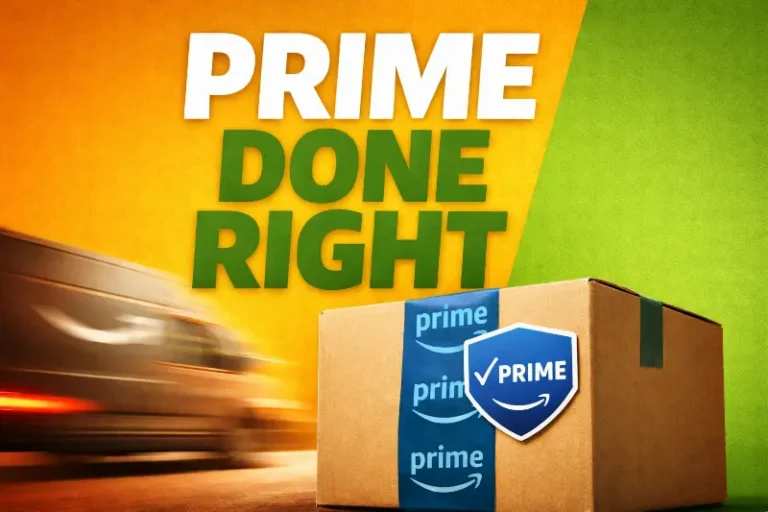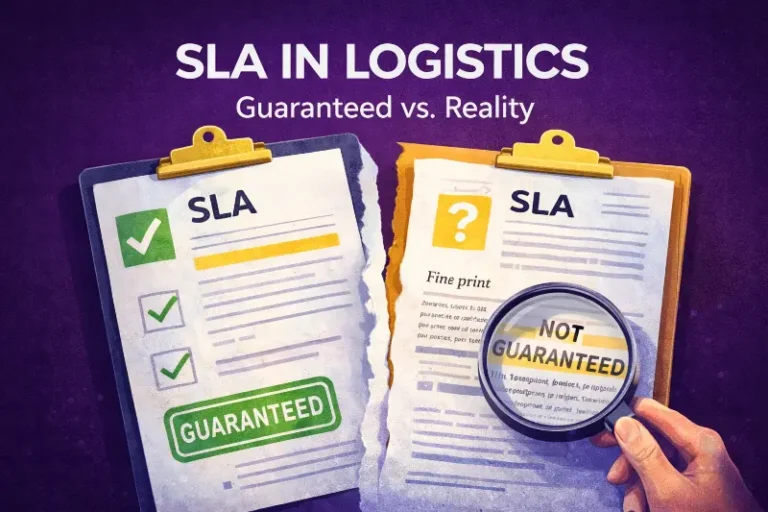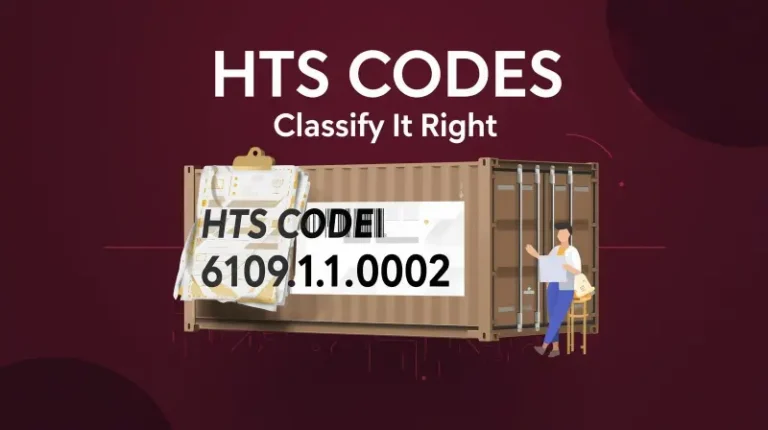LTL vs FTL: Complete Guide to Choosing the Right Freight Shipping Method

Last updated on September 05, 2025
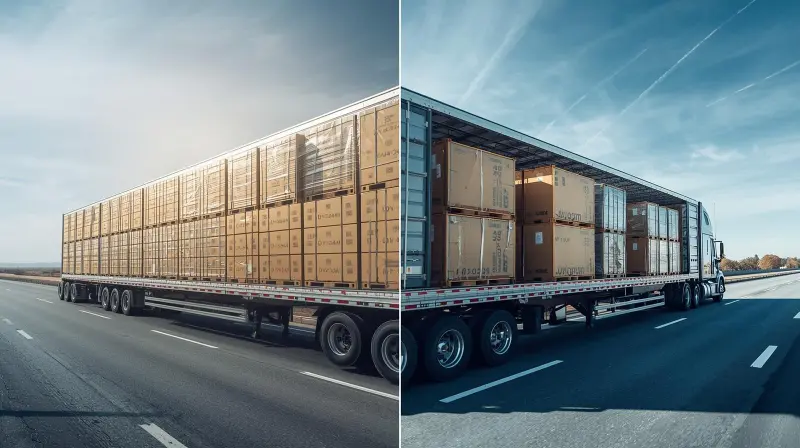
Choosing between LTL vs FTL shipping is a common dilemma in logistics. Selecting the right freight shipment method is crucial, as it impacts costs, delivery speed, and overall supply chain efficiency. Should you ship your goods as less than truckload (LTL) or spring for a full truckload (FTL)? The decision isn’t always straightforward, each freight shipping method has its own benefits and drawbacks. But making the right choice can lead to big cost savings, faster delivery times, and fewer headaches in your supply chain.
What Are LTL and FTL in Freight Shipping?
LTL (Less Than Truckload) shipping is for shipments that don’t fill a full truck. In LTL, your freight shares trailer space with other shippers’ freight, and you’re charged only for the portion of the truck you use. Shipments are considered LTL based on their volume or pallet count, and a shipment that does not fill a full truck is classified as an LTL shipment. LTL carriers combine multiple shippers’ freight, meaning multiple shippers share the same trailer for cost efficiency. LTL consolidates multiple smaller shipments and partial loads to optimize available space and reduce shipping costs. LTL carriers combine multiple shipments on one truck, which means your freight will likely make multiple stops or transfers through hub terminals on the way to its destination. This is ideal for a smaller shipment (a handful of pallets) where using a whole truck would be wasteful. LTL lets you pay for just what you need.
FTL (Full Truckload) shipping is when one shipper uses an entire truck for a single shipment. FTL provides dedicated space for a single shipper, utilizing all available space in the trailer exclusively for your freight. An FTL shipment is ideal for large, time-sensitive, or high-value freight. The trailer is fully dedicated to your freight and goes straight from pickup to final destination with no extra stops. FTL is usually chosen for large shipments (enough to fill most or all of a trailer) or for time-sensitive deliveries that need the quickest route. Because your freight isn’t handled or transferred along the way, there’s less risk of damage and generally faster transit times with FTL. Truckload freight refers to both FTL and LTL, and choosing between FTL and LTL depends on your shipment size and logistics needs.
LTL and FTL are the two main options for freight shipping, and selecting the right one depends on your specific requirements.
Slash Your Fulfillment Costs by Up to 30%
Cut shipping expenses by 30% and boost profit with Cahoot's AI-optimized fulfillment services and modern tech —no overheads and no humans required!
I'm Interested in Saving Time and MoneyKey Differences Between LTL and FTL
Both LTL and FTL will get your goods from point A to point B, but they do it in different ways. Here are the major differences to consider:
- Cost: LTL shipping is usually the lower cost option for smaller loads because you pay only for the portion of trailer space you use. FTL costs more since you’re paying for the entire truck, but it becomes more cost-effective as your shipment size approaches a full truckload (the bigger your load, the better value FTL gets per unit of freight). Shipping rates for LTL are often more economical for smaller loads due to shared costs, while in FTL, the shipper pays for exclusive use of the truck, which provides direct service and faster delivery.
- Transit Time: FTL shipments are generally faster. The truck goes directly from origin to destination with no extra stops. LTL shipments are slower because the truck makes multiple stops or transfers to accommodate other freight, which can add a few days to delivery time. FTL offers more predictable delivery dates and delivery timelines, making it ideal for time-sensitive shipments, while LTL delivery windows are more estimated and flexible.
- Handling & Risk: LTL involves more handling; your goods might be loaded and unloaded multiple times at various terminals. More touches mean a higher chance of damage or loss, so packaging needs to be very secure. FTL, by contrast, involves less handling (once your freight is loaded, it stays on that same truck until delivery), so the risk of damage is lower.
- Shipment Size: LTL handles shipments that only use part of a trailer, whereas FTL is meant for shipments large enough to fill most or all of a trailer. There are no hard and fast rules for when to choose LTL or FTL; sometimes consolidating your freight into one FTL shipment is more efficient, especially for large or time-sensitive loads.
These differences mean that neither option is “better” in an absolute sense, it depends on your specific shipping needs. Next, we’ll look at when it makes sense to choose LTL and when FTL might be the better fit.
When to Use LTL Shipping
LTL freight is best when your shipment is relatively small and time is not ultra-critical. LTL often involves multiple LTL deliveries, which can require careful coordination to manage several smaller shipments efficiently. If you’re shipping only a few pallets and can allow a longer transit time (LTL may take a bit longer due to stops), then LTL will provide significant cost savings over paying for a whole truck. To minimize damage during the LTL shipping process, it is important to ensure that your goods are properly packaged.
Looking for a New 3PL? Start with this Free RFP Template
Cut weeks off your selection process. Avoid pitfalls. Get the only 3PL RFP checklist built for ecommerce brands, absolutely free.
Get My Free 3PL RFPWhen to Use FTL Shipping
FTL freight is best suited for transporting large quantities of goods, making it ideal for large shipments or situations requiring speed and special care. If you have enough freight to fill most of a trailer (for example, approaching 10 or more pallets), it’s usually more practical to book a full truckload. FTL freight shipping is preferred by businesses that need speed, efficiency, and direct delivery for bigger loads, as it allows the entire truck to be dedicated to a single shipment.
FTL is also the right choice when you need a faster, direct delivery or when shipping high-value or fragile goods that you prefer not to mix with other shipments. A dedicated FTL truck gives you that exclusive space, less handling, and more control over timing.
Conclusion
Deciding between LTL and FTL comes down to balancing cost, speed, and shipment size. If you have smaller shipments and want to save on shipping costs, LTL freight is a flexible solution, you’ll trade off a bit of transit time for cost efficiency. If you need faster delivery, have a large load, or want minimal handling, FTL is worth the higher price for the dedicated service.
Many businesses actually use a mix of both LTL and FTL, depending on the situation. For example, we at Cahoot often remind businesses to evaluate each shipment’s urgency, size, and value case by case. Sometimes it even makes sense to consolidate multiple LTL shipments into one FTL if that provides better efficiency. The goal is to get your freight to its destination on time at a reasonable cost, whether that means LTL, FTL, or a combination.
By understanding the differences and strategic trade-offs of LTL vs FTL, you can make smarter shipping decisions that improve your supply chain efficiency and keep costs under control. In other words, use whichever truckload shipping approach best meets your needs, so your freight arrives safely, on schedule, and at a cost that makes sense for your business.
Frequently Asked Questions
What’s the difference between LTL and FTL?
LTL shares truck space with other shipments; FTL dedicates the whole truck to one shipment.
How do I choose between LTL and FTL?
Pick LTL for smaller, less urgent shipments; choose FTL for large, time-sensitive, or fragile loads.
How many pallets count as LTL vs FTL?
Up to about 6 – 10 pallets is typically LTL; beyond that, FTL or partial truckload makes more sense.
Which is cheaper, LTL or FTL?
LTL is cheaper for small loads. Once your shipment nearly fills a truck, FTL is usually more cost-efficient.
Do I need to know the freight class?
Yes for LTL, since pricing depends on freight class. FTL doesn’t use it the same way.

Turn Returns Into New Revenue
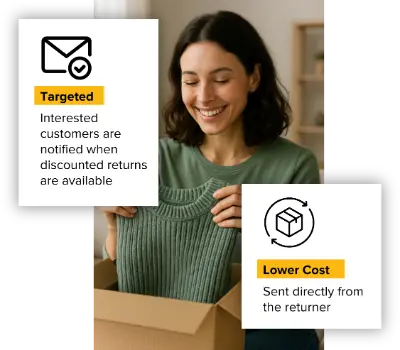

 7 minutes
7 minutes
